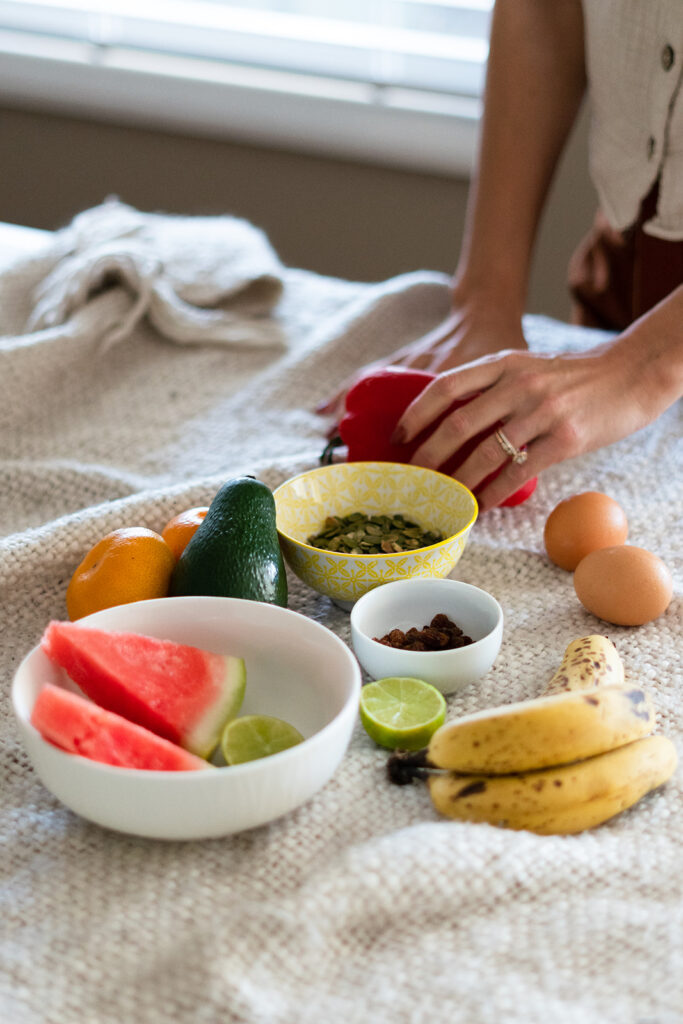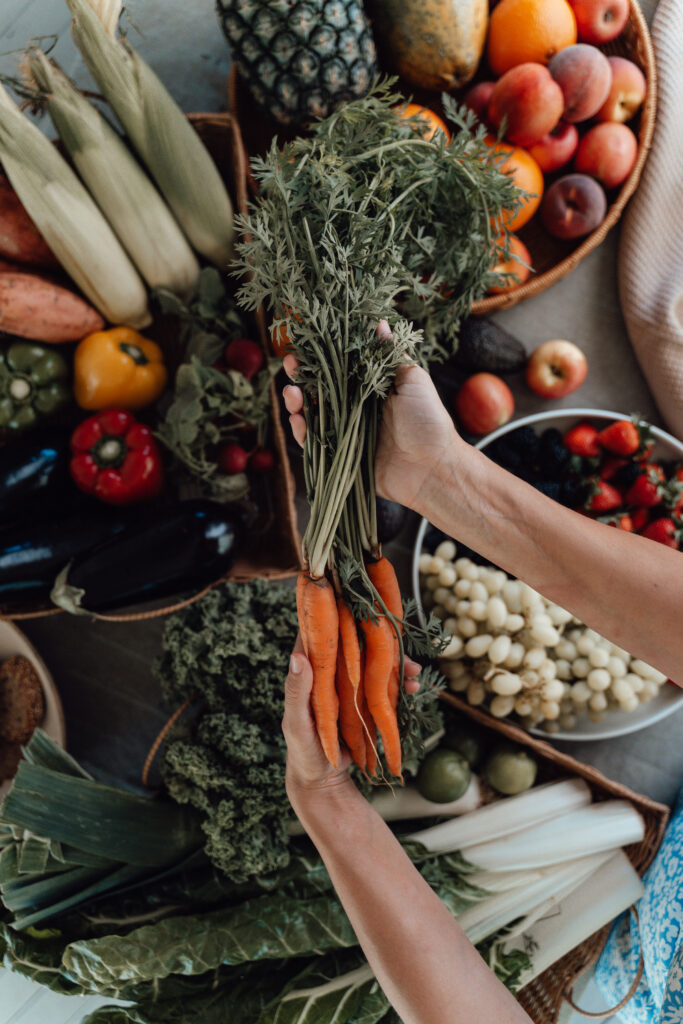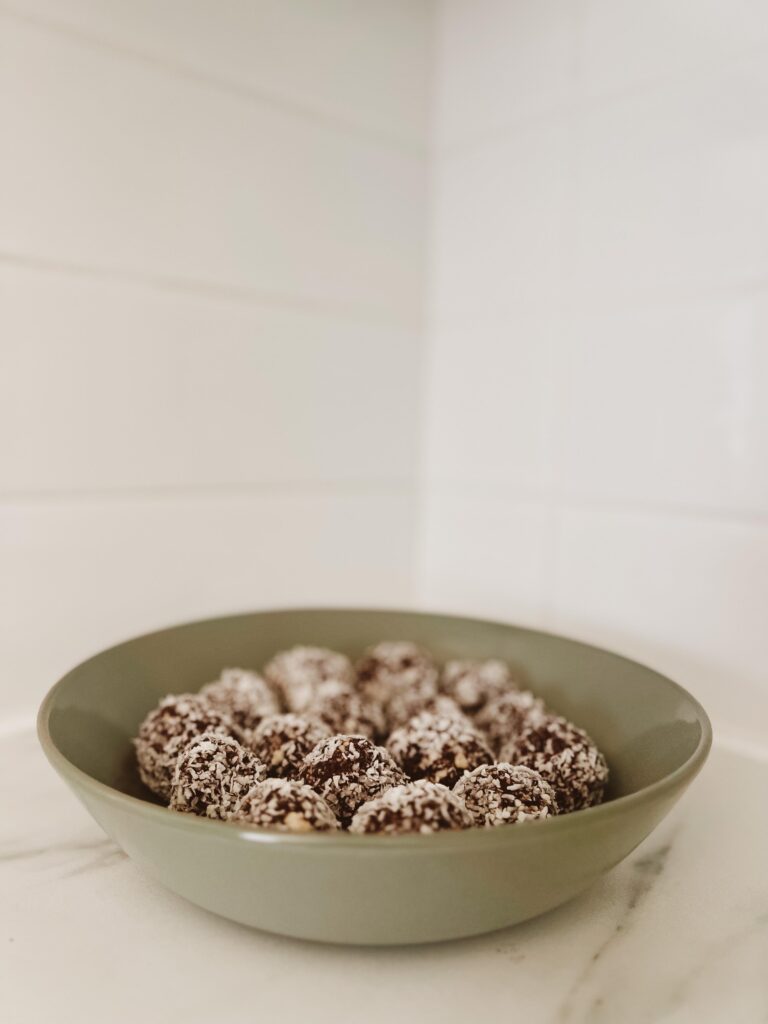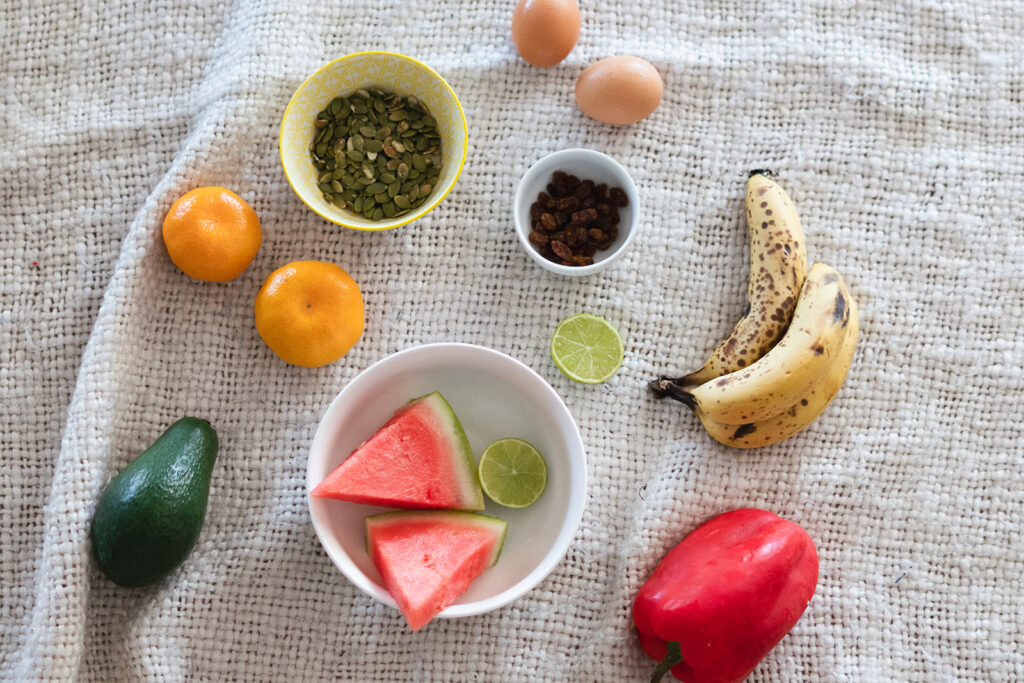As a Holistic Nutrition Consultant and mother of four, I know how important the introduction of solid foods are to your baby. Here I’ll be sharing a whole foods approach to first foods to offer your baby.

As parents, we want to give our babies the best start to life. Part of that is introducing them to good quality foods from the very beginning.
With my eldest two daughters, I had not studied nutrition education for babies, so I just went with my gut on what foods I should begin with. However, by the time I finished my nutrition studies, I had my third baby and felt very confident in the pure whole foods approach to starting solids.
I want to give parents the confidence to know what foods are beneficial for their babies and what should be delayed over time.
Check out my Introducing Solids Checklist with an introduction timeline to allergenic foods below.
Due to my two daughters having severe allergies and the daunting nature of introducing solids for the first time, it is a passion of mine to empower parents.
Let’s have a look at what I’ll cover in this blog.
What I’ll cover in this blog
- What is a whole foods approach?
- Why introducing allergenic foods through a delayed timeline is important
- First foods to offer to your baby
- Foods to support your baby’s gut health

What is a whole foods approach?
To put it simply, a whole foods approach is giving your baby real food, that is unprocessed and unrefined. Think produce, meat, whole grains, natural dairy.
We live in a fast food world, where we want convenient food quick. However, our health is at stake more than ever due to the poor quality foods we eat. So giving your baby the best start to life is starting them on a whole foods diet.
A whole foods diet will support their gut and digestive system and reduce the likelihood of allergies or intolerances. It will be a more pleasant experience for both you and your baby.
Why I don’t advocate for starting your baby on rice cereal:
Most rice cereals are made from poor quality ingredients, stripped of its nutrients and fibre. It is also a highly glycemic food (causes blood sugar spikes) and very bland tasting.
Rice lacks top essential nutrients a baby needs, like, fat, calcium, Vitamin D, choline, and naturally occurring iron. It is an iron-fortified food, meaning that it contains a synthetic version of iron that is not easily digestible for the body.
This is why I advocate for whole grains. Whole grains are purely sourced and unprocessed, meaning they are more easily digestible for the gut. It is important to soak and sprout your grains to increase nutrient absorption and density.
While rice cereal is convenient, it is not an optimal food to introduce to your baby for the above reasons.

Why you should introduce allergenic foods through a delayed timeline
Previous guidelines suggested highly allergenic foods to be introduced to babies from 12 months. However, research now suggests that the earlier the introduction, the better. The early introduction between 6-12 months can actually reduce your baby’s risk of developing allergies.
However, I strongly recommend introducing allergenic foods with a suggested timeline (download my Starting Solids Checklist above for a downloadable introduction timeline). This is due to your baby being ready to digest and tolerate certain foods.
For example, egg yolk can be introduced to your baby from 6 months, but wheat and grains should not be introduced until at least 10 months old. This is because grains take more effort for the baby to digest, so their digestive system must be a few months more mature to do so.
If you want to learn more about why a premature introduction of allergenic foods increases risks, then check out this study here.

First foods to offer to your baby
I like to suggest to parents to start your baby on some vegetables and fruit. If they are low allergenic foods, then you can serve a couple to a few types at a time.
Produce is a safer food to begin with and most parents are comfortable offering foods like pumpkin, carrot, apple, avocado and banana to their baby first.
Once your baby is familiar with some fruits and vegetables and has practiced the art of chewing, then I suggest moving on to some soft meat like slow cooked beef or soft chicken breast.
Some parents may only be comfortable serving purees at first. While I totally advocate for baby-led weaning approach, I encourage parents to use the feeding method they feel the most comfortable with.
Great first fruits to offer: apple, pear, apricot, bananas, peach, nectarines, blueberries, cherries, mango, plums, prunes, raspberries, watermelon (to name a few).
Great first vegetables to offer: Carrots, sweet potato, pumpkin, broccoli, cauliflower, egg plant, potatoes, zucchini, parsnip (to name a few).
Great first meats to offer: soft chicken breast or thigh, slow cooked beef or lamb and soft turkey breast.
Don’t shy away from adding healthy fats into their diet, like: coconut oil, ghee, organic butter, avocado oil or olive oil.
Don’t shy away from adding seasoning into their diet, like: chives, cinnamon, cumin, curry, dill, garlic, herbs, ginger etc.

Foods to offer to support your baby’s gut health
I am a big fan of gut-healthy foods. Especially because of my daughters’ allergies and having the desire to heal their little guts from the inside out.
When your baby’s gut health is well supported, they will be able to tolerate a variety of different foods.
Some great gut-supporting foods to offer your baby are:
Fermented food like sauerkraut, miso, kefir and kimchi. Fermented foods offer a variety of different bacteria that supports the gut in a positive way.
Healthy fats like avocado, olive oil, coconut and ghee help to stabilise your baby’s blood sugar levels throughout the day. When blood sugars are stabilised, this is helpful in supporting the gut.
Collagen-rich foods like bone broth and gelatin supports tissue regeneration, aids digestion and supports immunity.
Offer lots of anti-inflammatory foods to support your baby’s gut, like: colourful vegetables, dark leafy greens, blueberries, pineapple, paw paw, celery, wild salmon and oily fish (after 10 months).
More on the blog
The best eggless chocolate birthday cake for kids
How to support your gut after antibiotics use during labour
5 ways to eat healthy on a frugal budget
What first foods are you planning to offer your baby after reading this? I’d love to know!
Leave a Reply